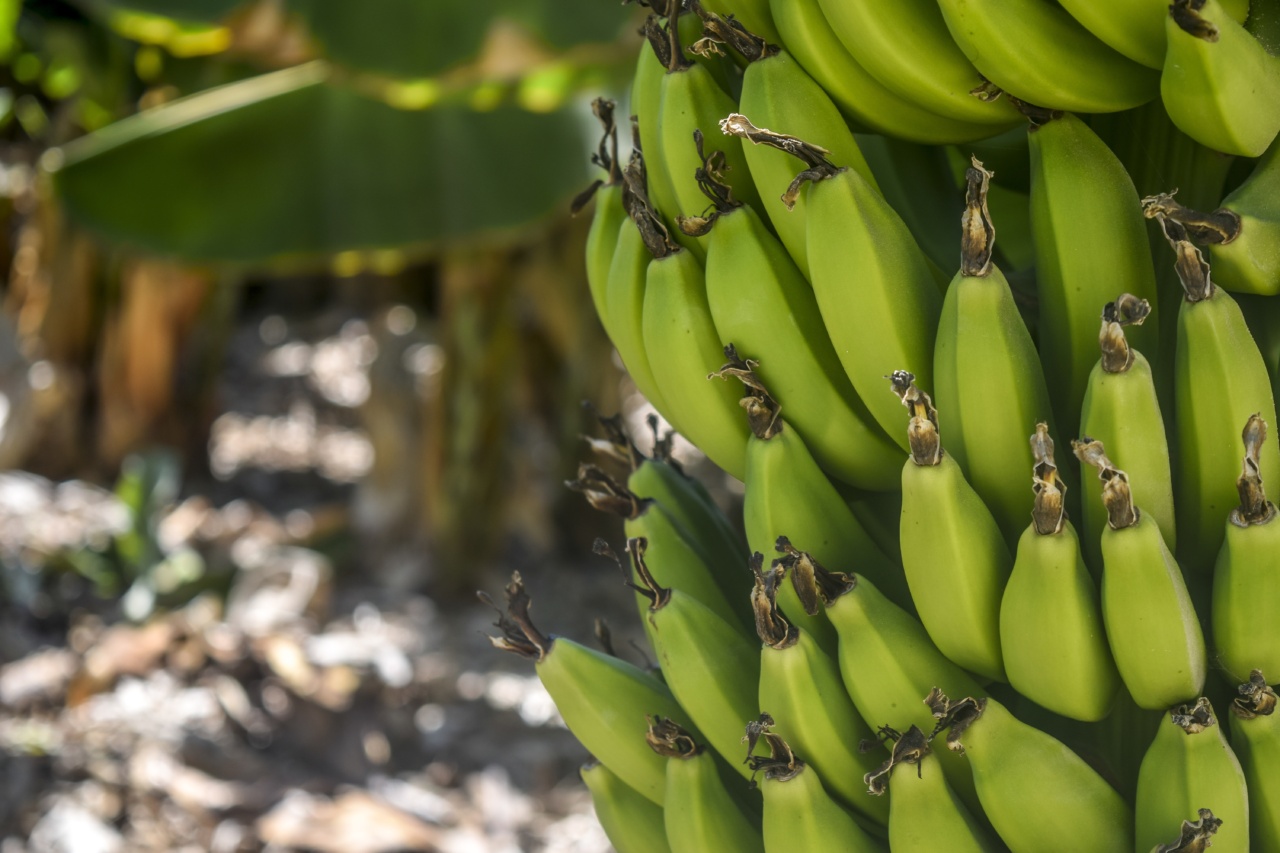Bananas are one of the most popular fruits consumed worldwide. They are delicious, convenient, and packed with essential nutrients. However, it is crucial to ensure that you eat ripe bananas rather than unripe ones.
While unripe bananas may seem harmless, they can have negative effects on your health and digestion. In this article, we will explore the reasons why you should never eat unripe bananas.
The Importance of Ripeness
Ripe bananas offer a range of health benefits, thanks to their rich nutrient profile. They are an excellent source of vitamins, minerals, and dietary fiber.
As bananas ripen, their starch content converts into simple sugars, making them sweet and easily digestible. This transformation not only enhances the taste but also improves their nutritional value. Unripe bananas, on the other hand, contain higher levels of starch and resistant starch, which can cause digestive discomfort and other health issues.
Digestive Discomfort
One of the primary concerns with unripe bananas is their impact on digestion. The high starch content in unripe bananas makes it challenging for the body to break them down efficiently.
This difficulty in digestion can lead to bloating, gas, and even abdominal cramps. Additionally, unripe bananas contain a type of fiber called resistant starch, which resists digestion in the small intestine. While some resistant starches are beneficial for gut health, consuming excessive amounts can cause digestive distress.
Nutrient Absorption
Another reason to avoid unripe bananas is their potential impact on nutrient absorption. The starch in unripe bananas can interfere with the absorption of certain nutrients, such as calcium and magnesium.
These minerals play a crucial role in various bodily functions, including bone health, muscle function, and nerve signaling. By consuming unripe bananas, you may inadvertently decrease your body’s ability to absorb and utilize these essential nutrients.
Blood Sugar Regulation
Ripe bananas have a lower glycemic index compared to unripe ones. The glycemic index (GI) is a measure of how quickly a food raises blood sugar levels. Foods with a high GI can cause a rapid spike in blood sugar, followed by a crash.
Unripe bananas, with their higher starch content, have a higher GI, which can lead to sharp blood sugar fluctuations. Individuals with diabetes or those trying to regulate their blood sugar levels should be cautious when consuming unripe bananas.
Vitamin and Mineral Content
Ripe bananas are not only sweeter but also higher in essential vitamins and minerals. As bananas ripen, their vitamin C and vitamin A content increases significantly.
These vitamins are powerful antioxidants that help support the immune system and promote healthy skin. Additionally, ripe bananas are a good source of potassium, a mineral that plays a vital role in maintaining proper heart and muscle function. Unripe bananas have lower levels of these beneficial vitamins and minerals, providing less nutritional value.
Antioxidant Levels
When a banana ripens, its antioxidant levels increase. Antioxidants are compounds that help protect the body against oxidative stress and damage from free radicals.
The antioxidant capacity of bananas is believed to enhance as the fruit changes color from green to yellow. Unripe bananas have lower antioxidant levels compared to their ripe counterparts, resulting in decreased protection from oxidative damage.
Gut Health
Ripe bananas contain a type of dietary fiber known as prebiotics. Prebiotics serve as food for beneficial gut bacteria, promoting a healthy gut microbiome.
However, unripe bananas contain higher amounts of resistant starch, which can hinder the growth of these beneficial bacteria. By consuming ripe bananas, you can support your gut health and improve digestion.
Texture and Taste
Aside from the potential health implications, unripe bananas may not be an enjoyable culinary experience. Unripe bananas have a firmer texture and lack the sweet taste associated with fully ripe bananas.
The starchy and sometimes chalky consistency of unripe bananas can be off-putting. Conversely, ripe bananas are soft, creamy, and naturally sweet, making them more pleasurable to eat both as a standalone snack and as an ingredient in various dishes.
Metabolism and Energy
As bananas ripen, their starch gets converted into simple sugars, providing a quick energy boost. The natural sugars in ripe bananas are easily metabolized by the body and offer an excellent source of fuel.
However, unripe bananas can make it harder for your body to metabolize the high starch content efficiently, resulting in slower energy release. If you need an instant energy boost, reach for a ripe banana instead of an unripe one.
Culinary Versatility
Ripe bananas lend themselves to a wide range of culinary applications. Their soft texture and sweet flavor make them an ideal ingredient in smoothies, baked goods, pancakes, and more.
The natural sweetness of ripe bananas can also serve as a healthier substitute for refined sugars in recipes. Unripe bananas, with their lack of sweetness and chewier texture, may not provide the desired taste and consistency in these culinary endeavors.
Conclusion
While unripe bananas may seem harmless, they can have negative consequences for your health and well-being. From digestive discomfort to impaired nutrient absorption, unripe bananas are best avoided.
Opt for ripe bananas instead, as they offer greater nutritional value, improved taste, and better health benefits. By making this simple switch, you can enjoy the sweet and nourishing qualities of ripe bananas while avoiding the potential drawbacks of their unripe counterparts.





























